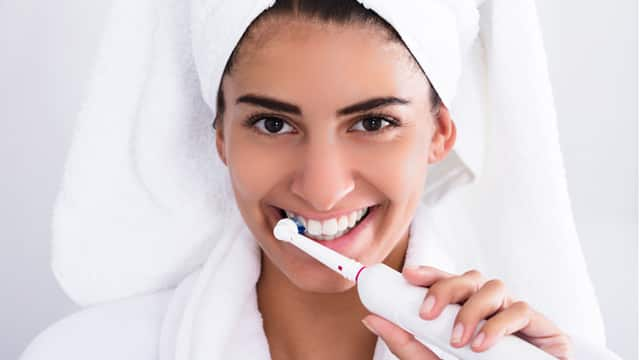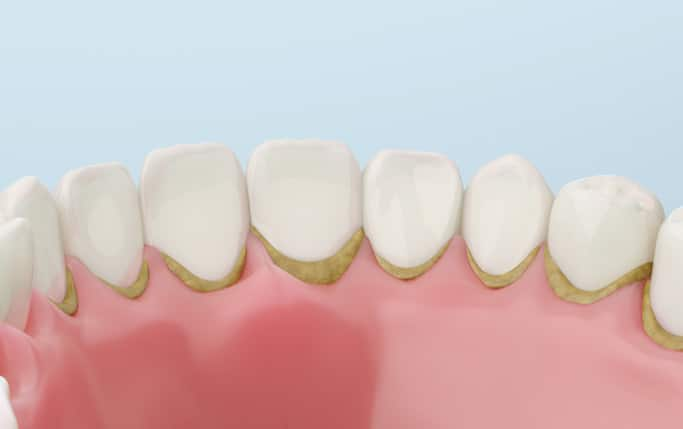Let us explore why choosing a tartar control toothpaste can be a smart move in your oral health regimen. Understanding its benefits and some of the top picks can help you to make an informed decision.
What is Tartar?
Tartar, also known as calculus, is hardened dental plaque. Plaque is a soft, colourless, sticky biofilm of bacteria and food particles that builds up along the teeth and gum line. If not cleaned daily by brushing and flossing, plaque can soon harden to tartar. Unlike plaque, tartar is relatively noticeable and does not go away with brushing and flossing.
Why Do You Need Tartar Control?
Keeping tartar and plaque in check is crucial in preventing various dental problems. Bacteria thrive in plaque and tartar deposits, raising tooth decay risks, cavities, and bad breath. As plaque continues to form, tartar formed on teeth creates a porous area, attracting more plaque deposits and extending the tartar formation cycle. Uncleaned tartar may absorb stains from pigmented drinks and foods, causing tooth discolouration.
Plaque and tartar are often the main culprits behind gum diseases. As plaque along the gum line hardens to tartar, it causes the gums to swell and bleed, indicating an early stage of gum disease called gingivitis. Left untreated, it may progress to an advanced stage called periodontitis. While tartar removal requires professional cleaning by a dental hygienist, tartar control toothpaste can help maintain oral hygiene. It helps remove plaque and prevent the formation of new tartar deposits after a dental cleaning.
What Traits To Consider in Tartar Control Toothpaste?
Ideally, a tartar control toothpaste helps slow down tartar formation from plaque. In addition to common toothpaste ingredients such as abrasives and fluoride, it contains ingredients that inhibit tartar buildup and remove plaque. Tartar removal toothpaste usually includes:
- Pyrophosphates: Pyrophosphates, such as tetrasodium pyrophosphate, act on the minerals in plaque that cause it to harden, preventing tartar buildup.
- Zinc citrate or zinc chloride: It acts as an antimicrobial and fights the bacteria that cause plaque formation and contribute to bad breath.
- Abrasives: The mild abrasive agents and surfactants gently remove surface stains from the teeth.
- Fluoride: It helps strengthen tooth enamel and prevent cavities by making teeth resistant to acid attacks from plaque bacteria.
- Flavouring agents and humectants: Ingredients like sorbitol add a pleasant taste to the toothpaste, prevent it from drying out, and give you a comfortable brushing experience.
What Are The Benefits of A Tartar Removal Toothpaste?
Dentists may recommend tartar control toothpaste for individuals more susceptible to plaque build-up on teeth. The addition of a tartar removal toothpaste in your dental care routine can bring several benefits that include:
- Anti-calculus action: Anti-calculus agents, such as pyrophosphates, help delay plaque calcification to form tartar. Regular brushing and flossing help remove plaque.
- Abrasive action: The mild abrasive agents help remove food particles and debris that contribute to plaque formation. They also help eliminate surface stains and polish teeth without damaging the tooth enamel.
- Protection from cavities: Fluoride in the toothpaste strengthens tooth enamel and protects teeth from cavities.
- Antimicrobial action: Ingredients such as zinc citrate and zinc chloride prevent the growth of harmful bacteria that cause plaque accumulation on teeth.
How To Use Tartar Removal Toothpaste?
To achieve the best results when using tartar removal toothpaste, brush your teeth for two minutes twice a day. Ideally, hold the brush at an angle of 45 degrees toward the gum line and brush with short, gentle strokes in a circular motion. The bacteria contributing to plaque can coat your tongue, so brushing the tongue also helps reduce the amount of oral bacteria.
Best Toothpaste Options For Tartar Prevention
One may be keen to find the best toothpaste to remove tartar. However, once tartar builds up on the teeth, toothpaste will not suffice, and you will have to consult a dentist to get rid of it. Including an efficacious tartar control toothpaste in your oral care can alleviate plaque build-up and prevent tartar formation.
Colgate Total Advanced Health
Another tartar control toothpaste pick is the Colgate Total Advanced Health toothpaste. Its Dual Zinc and Arginine formula actively seeks out bacteria on teeth, tongue, gums, and cheeks. Unlike regular fluoride toothpaste, it provides 12-hour antibacterial protection and whole-mouth health by preventing plaque and tartar accumulation, cavities, and bad breath.
Prevention of plaque and tartar build-up is vital for ensuring oral health and mitigating the risks of potential dental problems. Though tartar removal requires the help of a dentist, you can prevent its formation by removing plaque with regular brushing and flossing. Including an efficient tartar removal toothpaste can help you maintain good dental hygiene.
Frequently Asked Questions
- Does tartar damage teeth?
If left untreated, tartar build-up can have severe implications for your teeth. It harbours bacteria that can cause bad breath and cavities. Untreated tartar along the gum line can lead to potential gum diseases such as gingivitis and periodontitis. - Does tartar removing toothpaste work?
Tartar removal toothpaste helps slow down tartar formation from plaque and improves oral health. Its ingredients, such as pyrophosphates, delay plaque calcification. Other ingredients, such as zinc citrate, fight bacteria, while fluoride provides cavity protection. - What dissolves hard tartar on teeth?
Tartar requires professional cleaning by a dentist. Some people believe in using baking soda or vinegar to soften tartar on teeth. However, these have limited effectiveness and may only be suitable for some. For safe and effective tartar removal, professional dental cleaning is the best course of action. - Does chewing gum reduce tartar?
Chewing sugar-free gums can enhance saliva flow and wash away food particles, debris, and plaque-causing bacteria. Plaque hardens into tartar, so less plaque implies potentially less tartar. However, chewing gums should not replace brushing, flossing, and professional cleanings.
This article is intended to promote understanding of and knowledge about general oral health topics. It is not intended to be a substitute for professional advice, diagnosis or treatment. Always seek the advice of your dentist or other qualified healthcare provider with any questions you may have regarding a medical condition or treatment.
ORAL HEALTH QUIZ
What's behind your smile?
Take our Oral Health assessment to get the most from your oral care routine
ORAL HEALTH QUIZ
What's behind your smile?
Take our Oral Health assessment to get the most from your oral care routine













